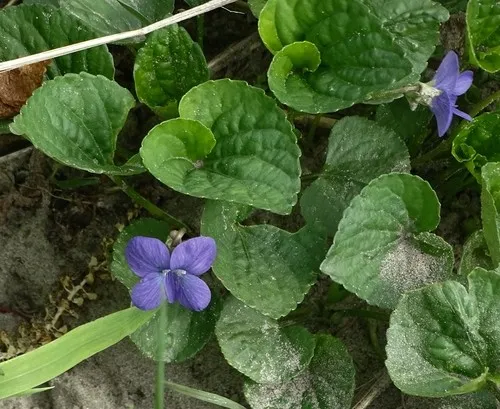Botanical Description: Birch leaf is derived from the Betula genus, deciduous trees belonging to the Betulaceae family. Notable species include Betula pendula (silver birch) and Betula pubescens (downy birch), widely distributed across temperate regions. The leaves are simple, alternate, and serrated, with a distinctive diamond-shaped base. Depending on the species, the color ranges from bright green to a muted yellow, turning golden in autumn. Birch trees are characterized by their slender trunks and peeling bark, often white or silver.
Disclaimer: This Materia Medica is provided for informational purposes only and should not replace professional medical advice. Please consult with a qualified healthcare practitioner or herbalist before using any herbal remedies.
Therapeutic Actions: Birch leaf possesses a spectrum of therapeutic actions, making it a valuable resource in herbal medicine. Its primary actions include:
- Diuretic: Birch leaf encourages the elimination of excess fluids, aiding in the management of edema and supporting kidney function.
- Anti-inflammatory: Its anti-inflammatory properties make it beneficial in conditions like arthritis and inflammatory skin disorders.
- Detoxifying: Birch leaf facilitates the elimination of toxins from the body, promoting overall detoxification.
- Antirheumatic: Useful in managing rheumatic conditions by reducing inflammation and supporting joint health.
- Antimicrobial: Exhibits antimicrobial properties, potentially assisting in combating certain infections.
Constituents: The medicinal properties of birch leaf can be attributed to its rich chemical composition, including:
- Flavonoids: Quercetin and kaempferol contribute to the herb’s anti-inflammatory and antioxidant effects.
- Tannins: Provide astringent properties, aiding in wound healing and alleviating diarrhea.
- Saponins: Contribute to the diuretic and expectorant actions of birch leaf.
- Volatile Oils: Impart antimicrobial effects, supporting the herb’s use in infectious conditions.
- Betulin and Betulinic Acid: These triterpenes have shown potential anticancer and anti-inflammatory activities.
Traditional Uses: Birch leaf has a longstanding history in traditional herbalism, where it has been employed for various purposes, including:
- Urinary Disorders: Used to address conditions such as urinary tract infections, cystitis, and kidney stones due to its diuretic properties.
- Skin Conditions: Applied topically or used internally for eczema, psoriasis, and other inflammatory skin conditions.
- Rheumatism and Arthritis: Utilized to reduce joint inflammation and alleviate symptoms associated with rheumatic conditions.
- Detoxification: Incorporated into detox programs to assist the body in eliminating accumulated toxins.
- Respiratory Conditions: Applied for respiratory issues like bronchitis and as an expectorant for coughs.
Dosage and Preparation: Dosage and preparation of birch leaf may vary based on the intended use. Common forms of administration include:
- Infusion: Prepare a tea by steeping 1-2 teaspoons of dried birch leaves in hot water for 10-15 minutes. Consume up to three times daily.
- Tincture: Take 2-4 mL of a 1:5 tincture, up to three times daily. Adjust dosage based on individual response.
- Topical Application: Infuse birch leaf into oils or creams for topical use in addressing skin conditions or joint pain.
Cautions and Considerations: Despite its therapeutic benefits, birch leaf should be used with caution under certain circumstances:
- Allergies: Individuals allergic to birch pollen may also be sensitive to birch leaf. Exercise caution and monitor for allergic reactions.
- Pregnancy and Lactation: Pregnant or breastfeeding individuals should consult a healthcare professional before using birch leaf.
- Kidney Conditions: Due to its diuretic action, excessive use may be contraindicated in individuals with kidney disorders.
- Drug Interactions: Consult with a healthcare provider if using medications, as birch leaf may interact with certain drugs.
Conclusion: In the hands of a skilled herbalist, birch leaf proves to be a versatile botanical ally, offering a range of therapeutic benefits. Its historical uses, supported by contemporary research on its constituents, underscore its relevance in modern herbal medicine. However, a nuanced approach, considering individual health status and potential contraindications, is essential for safe and effective utilization. As with any herbal remedy, consultation with a qualified healthcare practitioner is advised to ensure optimal outcomes and safety.





